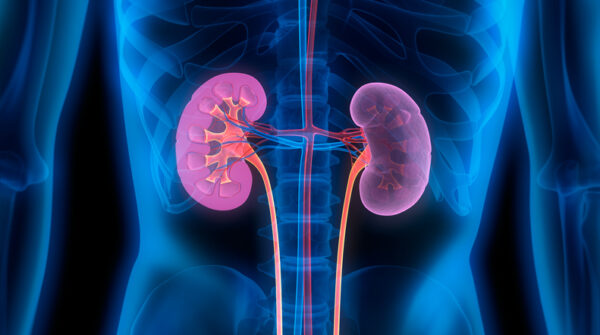
Chronic Kidney Disease (CKD) is a widespread and underrecognized health crisis that silently affects millions of people, often progressing without noticeable symptoms until it’s advanced. Around 90 percent of people with CKD are unaware of their condition and only 30 percent of those with common risk factors are regularly screened for it and yet, there are no evidence-based recommendations on clinical preventive services for the disease. The consequences for not prioritizing new guidelines for CKD screening have a devastating impact on population health by increasing the global mortality rate and driving higher healthcare costs. Earlier intervention is imperative to reducing the overall healthcare burden and preventing the need for expensive treatments by catching the disease before it progresses to end-stage renal disease (ESRD).
Given the urgency of this escalating global health crisis, a bipartisan group of lawmakers are urging the U.S. Preventive Services Task Force (USPSTF) to develop CKD screening recommendations to reflect an understanding of the seriousness of the condition. To improve patient outcomes and enhance quality of life, it’s essential to address shortcomings in identifying CKD and advocate for more comprehensive screening protocols.
It’s been more than a decade since the last time the USPSTF considered releasing kidney screening guidelines, which ultimately did not come to pass. Since guidelines were considered in 2012, the CKD public health crisis has continued to grow in prevalence. Advocacy efforts are centered on the broader benefits of screening the general population, with the primary objective of diagnosing CKD sooner, as early detection enables more effective intervention and management.
The National Kidney Foundation, along with the American Heart Association and the American Diabetes Association, all emphasize the importance of CKD screening. Their advocacy underscores the importance of having a centralized hub for guidelines, which can streamline recommendations and ensure that all service providers adhere to updated best practices. By expanding CKD screening, these groups aim to identify at-risk individuals before they face severe complications, thereby enhancing patient quality of life and alleviating strain on the healthcare system.
Broader screening is needed for the general population. Nephrologists and other specialists often see patients whose first appointment shows that CKD has already progressed to a critical stage, resulting in a sudden and challenging transition to dialysis. This late diagnosis not only impacts patients’ quality of life but also leads to higher infection rates and increased healthcare costs. Additionally, these disparities in screening and diagnosis disproportionately affect marginalized communities, exacerbating existing healthcare inequities. Nephrologists face the frustration of seeing patients whose CKD could have been managed more effectively with earlier detection.
Early screening facilitates timely diagnosis and allows for treatment initiation. Newer medications such as SGLT2 inhibitors and GLP-1 receptor agonists (GLP-1 RAs) offer significant benefits in managing diabetes, which can slow CKD progression. SGLT2 inhibitors are FDA-approved for type 2 diabetes, can be used even with an eGFR as low as 20 (CKD stage 4) and may also protect kidney function in those with early CKD, regardless of diabetes2. GLP-1 RAs, also FDA-approved for type 2 diabetes, support insulin production and glucose control when combined with diet and exercise and may benefit those on dialysis. These treatments are especially valuable for patients with both kidney and coronary artery disease. Leveraging new treatments along with early screening helps enable timely, proactive care to potentially avoid the need for invasive and costly treatments.
Creating USPSTF guidelines to incorporate these considerations would be a significant step forward. It would ensure that screening practices align with the latest advancements in treatment and better address the needs of patients who are at risk. The goal is not only to optimize the number of patients identified but also to enhance the effectiveness of interventions and improve overall outcomes.

The Power of One: Redefining Healthcare with an AI-Driven Unified Platform
In a landscape where complexity has long been the norm, the power of one lies not just in unification, but in intelligence and automation.
In summary, there is a compelling need for reform and screening guidance from the USPSTF to achieve health equity in CKD and overall improve health outcomes. By adopting more inclusive and proactive screening protocols, we can better manage CKD, minimize the progression of the disease, and ultimately improve patient outcomes. The time has come to embrace these changes and advocate for guidelines that reflect the evolving landscape of kidney care.
Photo: peterschreiber.media, Getty Images
Salvatore Viscomi, M.D. is the CEO and co-founder of Carna Health, a digital health platform innovating CKD population screening, monitoring and care management by leveraging point-of-care testing and AI-driven software. He is also the chief strategy advisor of two healthcare startups, Dama Health and QuantaBrain and an executive advisor to Intellectual Digital, an investment firm based in NYC and London. He previously led a Harvard Stem Cell Institute company’s product line of genetic and biomarker testing. Dr. Viscomi is a practicing physician, instructor and an entrepreneur. He spent 14 years as a member of Harvard Medical School’s faculty and concurrently as a clinician at Brigham and Women’s Hospital. In that capacity, he held various administrative and clinical roles including Director of Admissions of a Harvard Residency Program and Department Chairman.
This post appears through the MedCity Influencers program. Anyone can publish their perspective on business and innovation in healthcare on MedCity News through MedCity Influencers. Click here to find out how.









